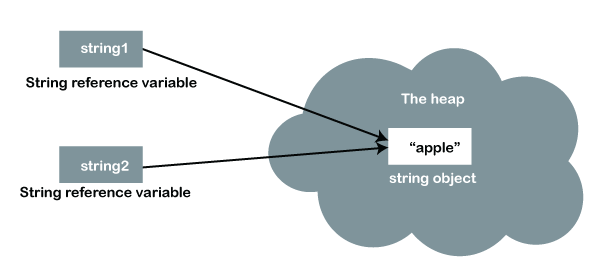Why Are Strings Immutable in Java? Protection and Efficiency Conveniences
Why Are Strings Immutable in Java? Protection and Efficiency Conveniences
Blog Article
Immutable Strings: A Key Component in Ensuring Information Consistency and Integrity
In the realm of data administration, the significance of unalterable strings can not be overemphasized. These imperishable series of characters play a crucial duty in promoting the integrity and precision of info within systems. By maintaining a state of immutability, information consistency is ensured, fostering a structure of integrity upon which vital procedures rely. The principle of unalterable strings goes beyond simple triviality; it is a linchpin in the complicated internet of information governance. As we check out the benefits, application strategies, and sensible applications of immutable strings, a more clear picture arises of their essential nature in safeguarding the electronic landscape.
The Concept of Unalterable Strings
Immutable strings, a fundamental principle in programming, refer to strings that can not be customized once they are developed. Fundamentally, once a string value is assigned, any type of operation that appears to change the string actually creates a new string. This immutability makes certain information consistency and dependability in applications, as it avoids unforeseen adjustments to the initial data.
Advantages in Data Consistency

Information uniformity is critical in different facets of software development, consisting of database monitoring, multi-threaded environments, and distributed systems (Why are strings immutable in Java?). Immutable strings contribute dramatically to attaining this uniformity by stopping data corruption because of concurrent accessibility. In situations where numerous procedures or threads connect with the exact same information concurrently, immutable strings serve as a secure against race problems and synchronization issues
Additionally, the immutability of strings streamlines debugging and screening procedures. With immutable strings, developers can rely on that once a string is set, it will continue to be unmodified, making it easier to map the source of errors and guaranteeing that examination instances create regular outcomes. This integrity in data taking care of eventually leads to extra durable and steady applications.

Carrying Out Immutable Strings
Making certain the immutability of strings calls for a thoughtful method to their implementation in software application development. One vital strategy is to design string classes in a way that avoids modifications when a string item is developed. By making strings unalterable, developers can boost data uniformity and reliability in their applications.
To apply immutable strings successfully, developers ought to favor developing new string objects as opposed to changing existing ones. This technique guarantees that when a string is designated a worth, it can not be transformed. Additionally, any kind of operation that shows up to modify the string should develop a brand-new string with the wanted modifications rather than go right here altering the initial.
In addition, using unalterable strings can simplify concurrency management in multi-threaded environments. Because immutable strings can not be altered after production, they can be securely shared among several strings without the risk of information corruption.
Duty in Dependability Guarantee
In software development, the usage of unalterable strings plays an important duty in making sure the dependability of data operations. Immutable strings, once produced, can not be customized, making sure that the data they represent stays consistent throughout the application's execution. This immutability building provides a level of guarantee that the information being processed will certainly not be unintentionally changed, leading to unexpected outcomes or mistakes in the system.
By including unalterable strings right into software application design, programmers can improve the integrity of their applications by reducing the dangers connected with mutable data - Why are strings immutable in Java?. Unalterable strings assist in protecting against information corruption or unintentional adjustments, which can be especially essential when handling sensitive details or when information stability is extremely important
Additionally, the usage of unalterable strings streamlines simultaneous processing, as multiple strings can securely access and share string information without the risk of one string changing the web content while one more reads it. This aspect adds significantly to the general integrity of the software over at this website application system, making sure predictable and constant behavior in data dealing with procedures.
Applications and System Combination
The smooth assimilation of immutable strings into different applications and systems is essential for ensuring robust information consistency and dependability across diverse technological atmospheres - Why are strings immutable in Java?. Unalterable strings play a crucial role in enhancing the honesty of information exchanges and interactions within facility software application environments. By including unalterable strings into applications, designers can reduce the dangers connected with data meddling, unauthorized adjustments, and unintentional alterations, therefore strengthening the overall safety and security posture of the system
Unalterable strings can enhance interoperability between inconsonant systems by giving a standard style for data representation, allowing a lot more efficient information processing and exchange methods throughout interconnected systems. By adopting immutable strings in applications and system integration processes, organizations can fortify their data framework and promote the integrity and uniformity of their details possessions.
Final Thought
Finally, immutable strings play a critical function in keeping information consistency and reliability in numerous applications and system integrations. By making certain that strings can not be transformed when produced, the honesty of information is protected, reducing the risk of variances and errors. Carrying out unalterable strings can substantially boost the integrity of systems, eventually causing even more exact and trustworthy information processing.

Report this page